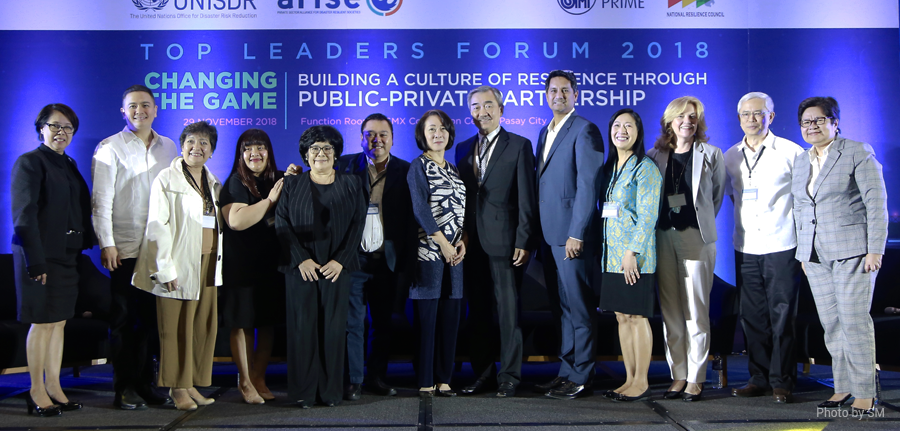Building Resilient Local Government Systems in the Philippines
NRC commits to building a resilient Philippines using S&T-based public-private partnerships, enhance LGU capacities with evidence-informed risk governance, strengthen and sustain high-level collaboration between government and industry and launch the resilience program with a core group of LGUs.
Description
The Philippines is making strides in disaster risk reduction, but even with the Republic Act 10121—an act strengthening Philippine disaster risk reduction and management—and the establishment of the National Disaster Risk Reduction and Management Council, the country still has work to do to address DRR, climate change and resilience.
As a science and technology-based and evidence-informed public-private partnership (PPP), the National Resilience Council (NRC)—formally launched in November 2017—is pursuing a disaster and climate resilient Philippines by strengthening the country’s disaster risk reduction (DRR) and resilience capacities through its local government units (LGUs), in close collaboration with the government, private sector, academe, scientific community and civil society.
NRC’s work responds to the priorities of the Sendai Framework for Disaster Risk Reduction (SFDRR), which highlights the importance of collaboration between and among various sectors. It also takes off from national instruments, DRR directives of government agencies, as well as other global frameworks like the Sustainable Development Goals, the Paris Climate Agreement and the New Urban Agenda.
For its commitment, NRC aims by the end of the year 2021 to achieve its mission through its RESILIENT LOCAL GOVERNMENT SYSTEMS PROGRAM. It covers Leadership for Resilience, a two-track (Leadership & Governance (L&G) and Science & Technology (S&T)) program done across a three-year runway for LGUs to develop and implement resilience initiatives, supported by a localized Resilience Scorecard that cuts across pillars on Leadership and Governance, Human Development, Local Economy, Infrastructure and Environment. Within three years, the program will have six capacity building modules, and each year will correspond to a stage that will build on each other to achieve disaster resilience—PREPARE, ADAPT and TRANSFORM. Its other deliverables shall include securing pre-agreements with the private sector and conducting trainings on Climate and Disaster Risk Assessment (CDRA).
With a localized approach to DRR and backed with both global and national instruments, NRC envisions a stronger foundation for the Philippines against potential hazards and risks.
Did the Sendai Framework change or contribute to changes in your activities/organization? If so, how?
Yes. NRC anchors its work on international guiding documents such as the Sendai Framework, which advocates sharing the responsibility of addressing disaster risk reduction and resilience concerns with other sectors in society. It highlights the critical role of the private sector, not only in reducing risks, but in preventing new risks from being generated. The NRC serves as a platform for the advancement of the objectives of UNISDR, in partnership with the national government, the private sector, academe and civil society.
What led you to make this commitment/initiative?
What was your position before making this Voluntary Commitment / prior to the Sendai Framework?
The Philippines is situated within the Pacific Ring of Fire, making it vulnerable to earthquakes and tsunamis, and is generally considered one of the most at risk to natural climate, weather & geological hazards. These circumstances prompted the development of better strategies on disaster risk reduction, climate change adaptation & sustainable development. But even with the DRR programs & a promising economy, it was still ranked 3rd as most at risk to natural hazards from 2011 to 2016 (UNU-EHS) & 4th as having high human cost to weather-related disasters from 1995 to 2015 (CRED-UNISDR).
This is consistent with NRC’s aim to build a resilient Philippines through S&T-based public-private partnerships. From the start, it believes in multi-stakeholder collaboration in addressing DRR & resilience challenges in the Philippines. NRC is determined to act on its advocacy & this is reflected in its approach with its Resilient LGU Program & Resilience Scorecard, which considers inputs & advice from various sectors such as government, private sector, academe, scientific community & civil society.

